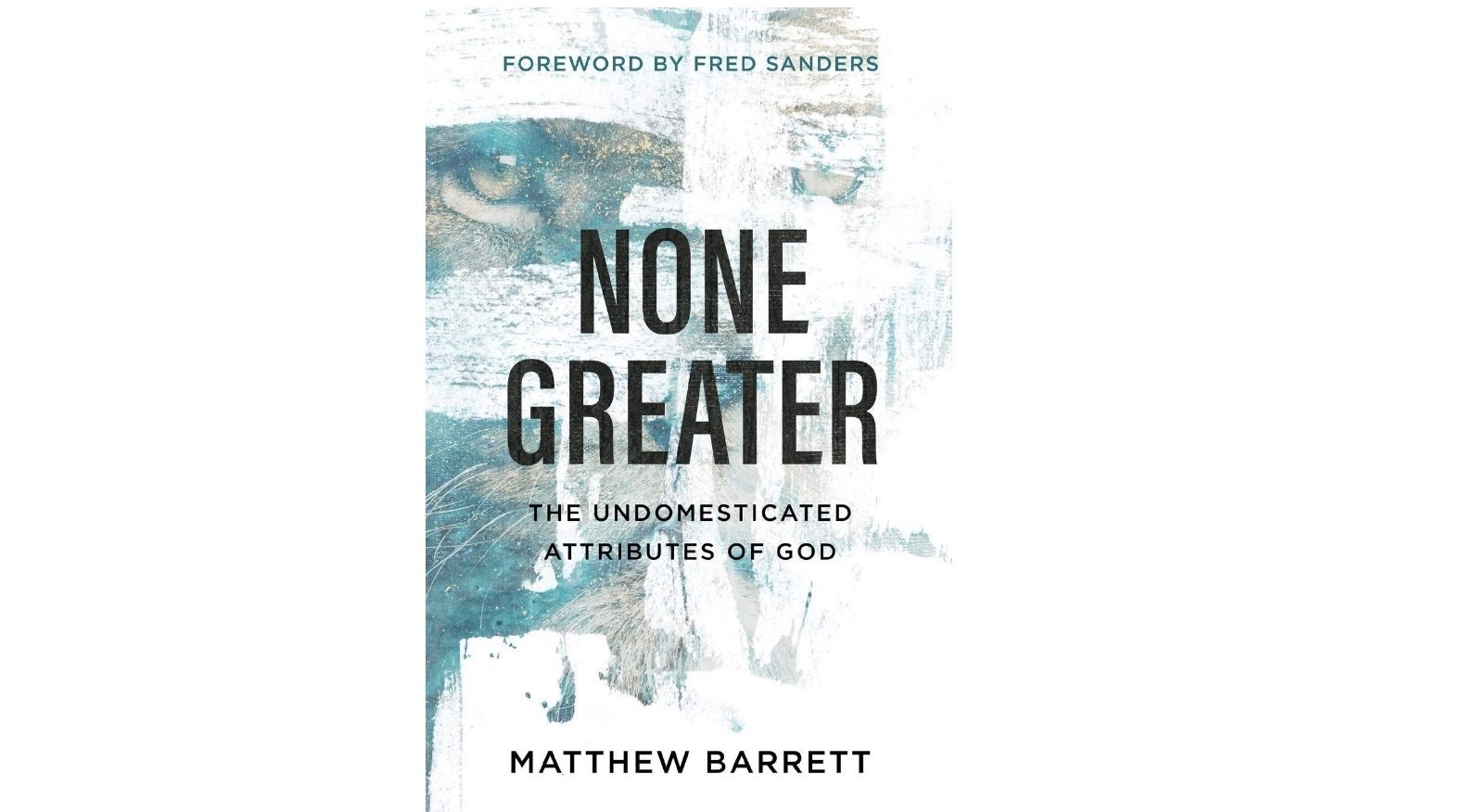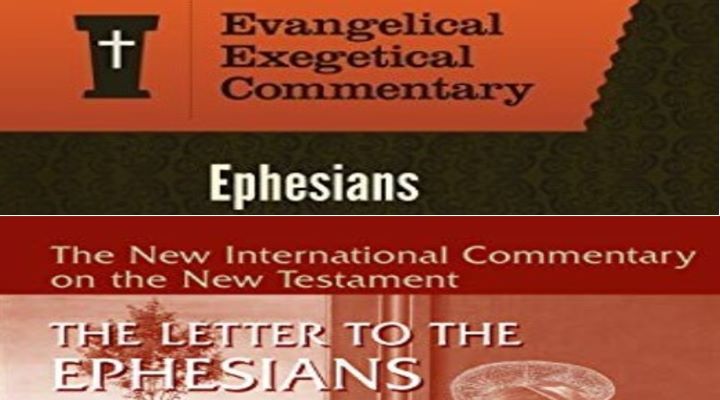Barrett, Matthew, None Greater: The Undomesticated Attributes of God. (Publisher: Baker Books), 2019. 283 pp. $16.99
Biographical Sketch of the Author
Matthew Barrett serves at Midwestern Baptist Theological Seminary as associate professor of Christian theology. He is executive editor of Credo magazine and host the podcast by the same name. He served as editor of Reformation Theology: A Systematic Summary; The Doctrine on Which the Church Stands or Falls: Justification in Biblical, Theological, Historical, and Pastoral Perspective; and co-editor of the Reformed, Exegetical and Doctrinal Studies series.
Summary of the Contents
In None Greater, Matthew Barrett says that “the God of classical theism is simply the God of the Bible.” (12) The author includes himself among those who have needed this correction in order to come to a more biblical understanding of theology proper, the doctrine of God himself (1-3). He begins the introduction by sharing his personal experience in coming to accept the tenants of classical theism, beginning with his experience of providentially discovering a worn copy of Calvin’s Institutes (2).

In the first chapter, the author looks at the incomprehensibility of God by asking if it is possible to know the very essence of God (15-28). The following chapter addresses how human beings as God’s creatures should or should not speak about him (29-40). God’s perfections are then examined in the third chapter (41-54).
The doctrines of divine aseity, simplicity, immutability, and impassibility are then covered in Chapters 4-7 respectively (55-138). The grouping of these doctrines is appropriate given their interrelated nature. This is followed by chapters dedicated to God’s timelessness and omnipresence (139-182). The other “all” attributes of God as to his omnipotence, omniscience, and omnisapience are grouped together in a single chapter (183-208).
Pastoral concerns about the righteousness, goodness, and love of God are covered in the context of asking how God can be both holy and loving (209-230). The concluding section in Chapter 12 explores the teaching that God’s jealousy for his own glory is appropriate (231-246). The final sections of the book include a helpful glossary of uncommon terms, endnotes, and bibliography (247-283).
Critical Evaluation
Matthew Barrett looks to his so called “A-Team” of some of the great old dead guys. These are Augustine, Anselm, and Aquinas. I think Barrett is exactly right to point out that these friends on his theological journey are only as helpful as they follow Scripture as the sole infallible rule of faith and practice (12). He is also careful to affirm God’s trinitarian nature, while not making the Trinity the focus of the book (13). Citing Tozer, the author gives the proper weight to the importance of recognizing the desire for a true knowledge of God as the ultimate purpose of theology.
In the chapter on incomprehensibility, there is an appropriate balance between the ideas that divine revelation, including God’s names, can communicate truth about him, yet not to an exhaustive extent (23). One of the many uncommon words explored in this section is the notion of “quiddity”, or a thing’s essential nature. Barrett’s conclusion is that “God’s quiddity is ineffable”, which is another way of saying that God is indescribable when it comes to his very essence. Those who voice concern about “putting God in a box” are correct as far as it concerns understanding God comprehensively. In other words, we can say true things about God as he has revealed himself, but that does not mean we have said everything there is to say about God. We can know him truly but not exhaustively. No, we should not “try to put God in a box” with our theology, but that is no excuse for trying to put him in a blender either.
The chapters in None Greater that deal with God’s simplicity and impassibility may prove the most difficult for many readers to grasp and accept. Using the analogy of a pie, Barrett points out the error in thinking that God’s attributes can be divided up into parts consisting of love, holiness, and so on (72). There is the related danger of pitting one attribute against another, not to mention viewing God’s attributes apart from himself. In keeping with the Shema, God is properly seen as “one” in his being (cf. Dt 6:4). God is “simple”, not in the sense of being “simplistic”, but in the sense that he is not composed of “parts”.
Divine impassibility is subject to similar misunderstandings as with simplicity. Barrett acknowledges the common arguments against impassibility, then gives some good arguments against the view of a “passible” God. Citing Thomas Weinandy’s reasoning, the author explains that for God to be “passible” would mean he could be “acted upon” (114). This would then bring about changes in God, contra his immutability.
A “passible” God would also be one with fluctuating emotions like human beings. Barrett denies that impassibility means God is cold or distant (115). He rightly argues that fallen creatures who struggle to control their emotions do not really want a God who “suffers” since that would entail a being like them who can become erratic or needy and thereby unreliable (121). By nature of his immutability, God’s love can be trusted as unchanging (137).
This may all be counterintuitive to many believers but ultimately, I think Barrett and the classical theism view is correct. What would it mean for God to undergo change? If any attribute of God can change, why not his love? If God is more loving now than he was in the past, wouldn’t that mean that his love is imperfect or was imperfect at some point? If any of God’s attributes ever are or were imperfect, wouldn’t that introduce imperfection in God himself? If I am right with God today by faith alone in the imputed righteousness of Christ alone but God can undergo change at some point, how could I ever be sure that I will stay right God? Why should I cry out to and trust in a God who is changeable? God’s immutability or unchangeability is not only taught in his Word, it should give Christians reassurance.
Throughout None Greater, Barrett intersperses brief, helpful biographical sketches of Calvin, Aquinas, Charnock, and others (31, 35, 79). I really only have one critique of this book and it is a minor one. I loved that Barrett affirms the reformation principle of sola scriptura and he provides so many quotes from the Bible in this work. This is why the decision to not include a scripture index is a little disappointing. As a theology nerd and now seminary student, features like scripture indices can make it easy to grab a book and quickly find what I need. (I know, I know, Kindle and all that, but my point stands for the print books.) Again, this is a minor quibble and should not discourage anyone from picking up this book.
Conclusion
Matthew Barrett’s None Greater is an important book that will serve as a great introduction to theology proper according to the classical theist view. In the preface, the author expresses his desire to provide what C.S. Lewis described as a doctrinal book which inspires greater devotion to God in its readers (xv). Each of the attributes of God explored in this volume is worthy of further exploration. Overall, this book proves to be a doctrinally rich, yet accessible work on the attributes of God which have been historically affirmed by classical theism. I highly recommend it.






Robert, thank you very much for the kind words, brother. That sincerely means a lot to me that your spirit…